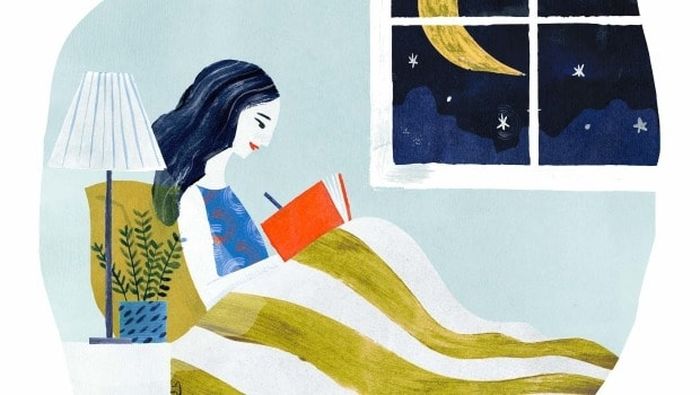Postcards from Vienna
Though some now class postcards as a dying art, trips to the local Viennese post office have in fact become a regular feature of Anna Whitehead‘s year abroad. Why is this the case?

As I headed down to the Post Office the other day in a blizzard of snow, I found myself thinking about how absurd it seemed that the aesthetic, and probably now slightly soggy, postcards would effortlessly land on my friends’ doorsteps in a matter of days, while any similar cross-European trip I might take would entail hundreds of pounds of Covid-19 tests, flights, quarantine, and the risk of getting stuck. As I fumbled around in the cold with my FFP2 mask, my glasses steaming up, I dare say I felt almost envious of the postcard which would make its way onto my Grandmother’s kitchen wall in the next week or so – coming far closer to her and those delicious toasted and buttered M&S hot cross buns than I would be this Easter break.
As much as I do love thinking up a witty Instagram caption, nothing comes close to the experience of writing and sending a postcard. We live in an age where I can pull out my phone and ping a snap of the view from my bedroom over to a cousin in The Philippines in seconds, and yet this is paradoxically also the reason why putting pen to paper is worth it. The process of finding postcards and stamps requires care, effort, and even human interaction – “Briefmarken für Großbritannien, bitte” – the subsequent exchange at the Post Office is an excellent opportunity for those German conversational skills. Sending a postcard or a letter reminds me of the physical distance between myself and the recipient; it makes the communication somehow seem more authentic, more tangible.
“As much as I do love thinking up a witty Instagram caption, nothing comes close to the experience of writing and sending a postcard”
Writing a postcard is a delicate skill – when faced with such a limited amount of space, what will make the cut? Do I give a run-down of what I’ve done or where I’ve pottered around lately? Do I ruminate about how lovely it would be if they could come and visit and sign off with the classic, but cliché, ‘Wish you were here!’? Or do I just recall what cakes and stews I’ve tried to eat that week? (Probably a yes to that one.) Squeezing a flurry of emotions onto half of a card is an impossible task, and I often feel that my postcards provide just a snapshot of my reality – and that’s a reality that will likely have changed by the time the recipient reads it. I had the particularly bizarre experience of opening Christmas cards in mid-February – both the cards and myself evidently having arrived in Vienna far later than expected – and felt very odd reading hopeful phrases looking forward to what would be non-existent cheese courses and family dinners. Postcards serve as a time-capsule, reminding us from their place on the kitchen wall of sunny summer holidays and school trips; scrawled biro lines immortalising our feelings and well-wishes to our Grandparents over the years.
“Penning letters late at night transports me back to a previous era, making me feel like an intrepid explorer relaying news of their travels back across the waves”
As much as I can attempt to justify my yearly postage expenditure, I also feel that penning letters late at night transports me back to a previous era, making me feel like an intrepid explorer relaying news of their travels back across the waves, or a Countess confined to her quarters. I’ve always enjoyed a good epistolary novel and have often wondered if this has something to do with my appreciation of sending and receiving post. The Guernsey Literary and Potato Peel Pie Society, which became even more popular through the 2018 movie starring Lily James, is one of the few books I’ve read multiple times and still find touching. Helene Hanff’s 84, Charing Cross Road is equally one of those terribly endearing books which leaves you wishing you had a sporadic correspondence with an unlikely bookseller, or found your soulmate browsing the shelves at your local bookshop. I’ll admit that Choderlos de Laclos’ novel Les Liaisons dangereuses (1782) was perhaps a little too scandalous and complicated for my liking, especially as the last text at the end of an exhausting Michaelmas Term, but it truly is an epistolary tour de force.
The phrase ‘Postcards from Vienna’ came to me long before I landed in the land of cream-coloured ponies and crisp apple strudels. It floated around at the back of my mind, perhaps a reminder of what family and friends expected from my Year Abroad, or the title of the travel novel I always joke about writing. Rather ironically however, there’s still somewhere on that tiny space on the back of a postcard that these 700 or so words will never quite fill, which leads me to conclude on some of my favourite things: the postcards are here to stay. Or rather, to be sent.
 Comment / Cambridge’s tourism risks commodifying students18 April 2025
Comment / Cambridge’s tourism risks commodifying students18 April 2025 News / Cambridge student numbers fall amid nationwide decline14 April 2025
News / Cambridge student numbers fall amid nationwide decline14 April 2025 News / Greenwich House occupiers miss deadline to respond to University legal action15 April 2025
News / Greenwich House occupiers miss deadline to respond to University legal action15 April 2025 Comment / The Cambridge workload prioritises quantity over quality 16 April 2025
Comment / The Cambridge workload prioritises quantity over quality 16 April 2025 News / Varsity ChatGPT survey17 April 2025
News / Varsity ChatGPT survey17 April 2025





